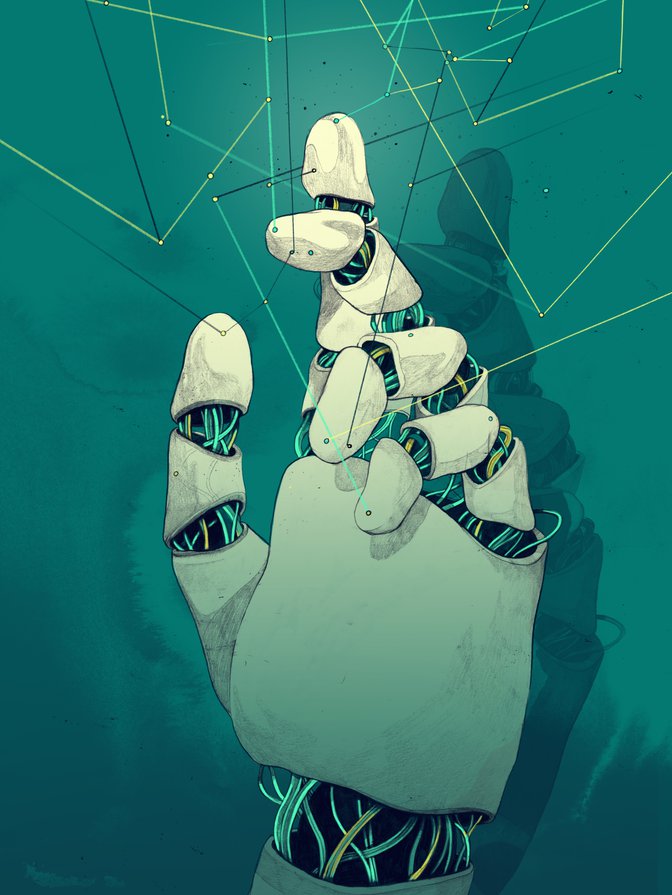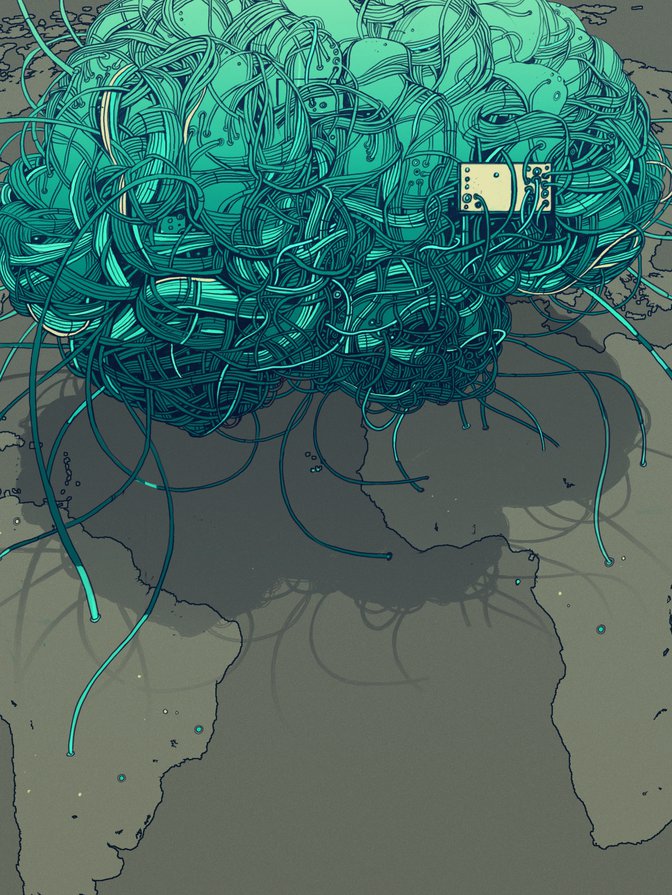obust global standards and third-party certification programs are essential to anchor big tech platform governance. First, credible and enforceable global standards are needed for consumers and civil society to regain trust in big tech platforms. Second, they represent the only available pathway to avoid an unwieldy patchwork of national regulations. As well, global standards are required to create a level playing field, where smaller firms can compete against big tech platforms. Finally, without global standards, there cannot be an inclusive digital economy and society, as called for by the UN Secretary-General’s High-level Panel on Digital Cooperation. The creation of a Digital Stability Board — as Robert Fay proposes in this series — can spur the development of credible global standards and third-party certification programs to properly frame big data analytics. Given the stakes, and the large number of standards and specification bodies involved, there is an urgent need for international cooperation and coordination in this space.
What Standards Are and Why They Matter
Although they’re not visible to the average consumer, standards and conformity assessment activities keep the economy running. They cover everything from setting the size of the simplest screw thread to managing the most complex information technology network. Standards provide a level playing field for industry and help build trust between participants in supply chains. Standards serve as a “handshake” between various components of systems and allow for interoperability. Standards also play a pivotal role in protecting the health and safety of consumers in a range of sectors, including food and consumer products, infrastructure and the workplace.
Standards set out requirements, specifications, guidelines or characteristics that can be consistently applied to ensure that products, materials, processes and services perform as intended — qualitatively, safely and efficiently. They are drafted in a way that allows another party to test and certify that a product, process or system meets the requirements of a specific standard. Put simply, they make things work, help innovations spread and facilitate efficient trade among provinces, countries, economic regions and the international community of nations.
Standards serve as a “handshake” between various components of systems and allow for interoperability.
Standards are generally developed through a formalized rule-making process involving engineers and other technical experts, regulators and consumer interests. The process aims at balancing competing interests in order to offer a technical solution that is broadly accepted and shares the benefits of technological compatibility as widely as possible.
Many standards bodies were created at the beginning of the twentieth century to support industrialization. After World War II, new international organizations such as the International Organization for Standardization (ISO) were established as trade liberalization discussions gained traction. Today, thousands of standards development organizations (SDOs) are managing more than one million national standards and more than 330,000 international standards.
Principles for Standards Development and Maintenance
Standards to support the industrial economy were generally developed according to formalized rules stipulating the processes to be followed and involved engineers and other technical experts, regulators and consumer interest groups. International standards development bodies conform to the six principles of the World Trade Organization (WTO) for standards development and maintenance. These principles shed light on the philosophy behind technical standards development activities, and should be used by any organization entrusted with the development of global standards covering big data analytics, so as to bring credibility to the process and the outcomes.
Transparency
All essential information regarding current work programs, as well as about proposals for standards, guides and recommendations under consideration, and the final results of programs and recommendations, should be made easily accessible to at least all interested parties in the territories of at least all WTO members. Procedures should be established so that adequate time and opportunities are provided for written comments.
Openness
Membership in an international standards body should be made open on a non-discriminatory basis to, at the least, the relevant bodies of all WTO members. Participation at the policy development level and at every stage of standards development should also be open to members, without discrimination. Developing country members, in particular those with an interest in a specific standardization activity, should be provided with meaningful opportunities to participate at all stages of standard development.
Impartiality and Consensus
All relevant bodies of WTO members should be provided with meaningful opportunities to contribute to the elaboration of an international standard so that the standard development process will not give privilege to, or favour the interests of, one or more particular supplier, country or region. Consensus procedures should be established that seek to take into account the views of all parties concerned, and to reconcile any conflicting arguments.
Effectiveness and Relevance
In order to prevent unnecessary trade barriers, international standards need to be relevant and to effectively respond to regulatory and market needs, as well as to scientific and technological developments in various countries. They should not distort the global market, have adverse effects on fair competition, or stifle innovation and technological development. In addition, they should not give preference to the characteristics or requirements of specific countries or regions when different needs or interests exist in other countries or regions. Whenever possible, international standards should be based on performance rather than design or descriptive characteristics.
Coherence
To avoid the development of conflicting international standards, international standardizing bodies must avoid duplicating, or overlapping with, the work of other international standardizing bodies. Cooperation and coordination with other relevant international bodies is essential
Development Dimension
Constraints to effective participation in standards development, in particular the constraints on developing countries, should be taken into consideration in the standards development process. Tangible ways of facilitating developing countries’ involvement in international standards development should be sought. The impartiality and openness of any international standardization process require that developing countries are not excluded de facto from the process.
Standardization in the ICT Sector
When it comes to the information and communications technology (ICT) sector, standard-setting activities can only be described as extraordinarily complex, opaque, evolutionary, bottom-up and unpredictable.
A number of factors led to the development of new models for setting standards and specifications (such as consortia and open-source software collaboratives), in parallel to traditional SDOs. In its infancy, the ICT sector followed the same path as other industries and relied on the traditional standards development model. However, with digitization in the 1970s, new approaches were needed to quickly set a bewildering number of new standards and specifications in order to achieve interoperability (Updegrove 2007). Starting in the 1980s, standards consortia organizations began to appear. Approximately 60 percent of all standards and specifications covering the ICT sector were created by consortia, including well-recognized interoperability standards such as USB drives, DVDs, the Blu-ray optical disc format, HTML, UHD, XML, MIDI and PCI Express (Biddle et al. 2012).
Without global standards framing data value chains, international digital cooperation will remain a pipe dream.
The entire edifice of digitization is based on software development and coding. As digitization emerged, so did new approaches to draft, test and ensure new ICT products’ interoperability, from software to code language and apps. Although traditional SDOs are still used to generate rules for broad applications such as cyber security management systems or cloud computing, by and large, software developers shunned traditional SDOs and standards/specifications consortia in favour of open-source software platforms. Microsoft, for example, which relied heavily on traditional SDOs to ensure interoperability, testing and certification of products such as cloud computing in the early 2000s, now uses development platforms such as GitHub to host and review code and build software with a community of 24 million developers.
However, unlike traditional SDOs, consortia and open-source development platforms are simply not designed to solicit broad public participation for making choices between various approaches or to integrate social, ethical, cultural or other considerations as a new product is being designed. When a project is assigned to an open-source software development platform, fundamental questions surrounding the “whether,” the “what” and the “why” and the possible alternatives to an approach have already been answered. Instead of focusing on these fundamentals, participants are invited to work together to fix bugs and to help on the “how,” including product design, outreach and marketing, to ensure new projects actually work as intended when launched. This process raises serious accountability and responsibility issues whenever software may have an impact on the health, safety and security of users.
The Case for Global Standards to Frame Big Data Analytics
There are five main arguments that call for voluntary, global standards to frame big data analytics, which includes big data platforms.
- Innovation is outpacing legal and regulatory frameworks and regulators’ ability to respond to new issues.
- Governments are responding by developing approaches to frame new issues on their own, but fundamental principles are not harmonized around the world, leaving both regulators and big tech platforms unsure of how to enforce or comply. Inconsistencies in approaches are adding costs for framework implementation and contributing to lack of compliance because of conflicting requirements.
- Big data analytics is not the exclusive domain of big tech platforms, but becoming embedded in all industries, including traditional market players. While in the past each sector built a standardization framework in silos, market participants now employ legions of ICT software engineers and data scientists to work on big data analytics. Foundational documents can underpin new innovations in all market segments and allow for interoperability, not only with big tech platforms, but also between other players.
- The geopolitical dynamics of increased nationalism are weakening a number of international organizations aimed at supporting globalization through treaties and binding agreements. The international standards development community is one of the few stable institutions providing an international trust mechanism able to balance essential sovereignty concerns with global trade, because it is in the business of developing voluntary normative documents.
- If we do not pre-emptively establish normative standards to help society manage the risks accompanying big data, the consequences will almost certainly be unintended and unanticipated harm. The difference between these digital innovations and historical innovations in the tangible goods economy is that the unprecedented rate of progress and innovative possibilities today can outpace sober second thoughts.
The Need for Enhanced Coordination and Cooperation
The Undergrove survey (referenced above) identified more than 200 organizations involved in standardization in the digital industries sector, from long-established international bodies to technology-specific consortia to open-source specification platforms. Traditional standardization bodies such as the ISO, the International Electrotechnical Commission (IEC) and the Institute of Electrical and Electronics Engineers (IEEE) have been active in developing standards to frame big data analytics. The ISO and the IEC, for example, created new committees and working groups under the Joint Technical Committee — JTC 1 — to develop foundational standards covering big data and artificial intelligence. The IEEE is spearheading a global initiative on the ethics of autonomous and intelligent systems, a new series of standards under its 7000 series and a new ethics certification program for autonomous and intelligent systems. In Canada, the Chief Information Officers Strategy Council has been accredited by the Standards Council of Canada to develop big data standards.
In addition, a large number of collaborative development platforms (open-source development and informal group projects) have become the preferred method for software-based interoperability development. However, while addressing certain industry needs, consortia and open-source platforms generally do not satisfy regulators’ need to adhere to more formal international requirements regarding government use of global standards developed in the private sector.
Standardization work in this space would greatly benefit from enhanced cooperation and coordination. There is a need to establish a more robust dialogue between big tech software engineers, data scientists, regulators and civil society, and to agree on an international standards road map to properly frame international digital cooperation. However, no organization has been mandated by governments to coordinate global standards development activities and to ensure that all standards-setting bodies in the digital space adhere to the WTO principles, in order to ensure the credibility of both the process and the outcomes. A Digital Stability Board could be entrusted with these tasks.
Without global standards framing data value chains, international digital cooperation will remain a pipe dream. The world needs credible data governance standards covering issues such as privacy, the respect of fundamental rights, cyber security and data residency. We need big tech platforms to adopt those standards, and we need credible third-party certification programs to ensure that the standards are met.
Although it may sound counterintuitive, when it comes to global standards setting, leaders of big tech platforms at Google, Apple, Facebook, Amazon and the like are standing in the way of progress. Big tech leaders need to rethink their strategy regarding global voluntary standards setting. Stakeholders and shareholders don’t want (and won’t stand for) a patchwork of unenforceable, company-specific data governance policies, such as Google’s proposed industry “standard” on data collection and digital advertising (Google 2019). Now is the time for big tech platform leaders to stop obfuscating and to join others in the global standards development sandbox. We need all players to work toward “one standard, one test” in order to reap the benefits of big data analytics.















